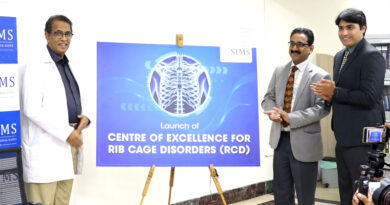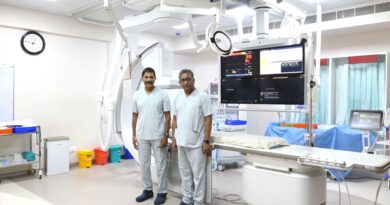Robotic-Assisted Surgery Transforms Gynaecological Care in India, Study Finds
Mumbai: A multi-institutional study has highlighted the growing role of robotic-assisted surgery (RAS) in reshaping gynaecological care in India. The study, conducted across five tertiary care hospitals, analyzed data from over 10 years and found a significant increase in the use of RAS for both benign and malignant conditions.
Key Findings
- Increased Adoption: Over 70% of robotic gynaecological procedures took place in the final five years, indicating a strong upward trajectory.
- Benefits: RAS offers enhanced precision, improved outcomes, reduced blood loss, and faster recovery times.
- Common Conditions: Fibroids, endometriosis, adenomyosis, vault prolapse, and ovarian cysts were the most common indications for robotic surgery.
Expert Insights
- Dr. Rooma Sinha: “Robotic-assisted surgery is increasingly being used to manage benign gynaecological conditions, offering enhanced precision and improved outcomes.”
- Dr. Vanita Jain: “Women often spend less time in the hospital and experience fewer complications related to blood loss with robotic procedures.”
- Dr. Subhas C Saha: “Advanced robotic systems like the da Vinci platform offer better visualisation and manoeuvrability, making a real difference in challenging cases.”
Future Directions
- Insurance Coverage: The study highlights the need for improved affordability and access to RAS, with a strong case for insurance payers to expand coverage.
- Cost Optimisation: Surgeons are refining techniques to reduce costs while delivering high-quality care and better patient outcomes.




